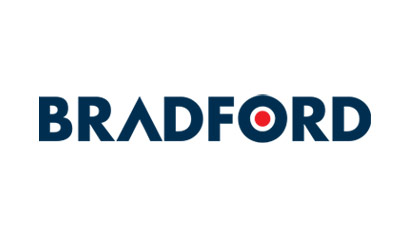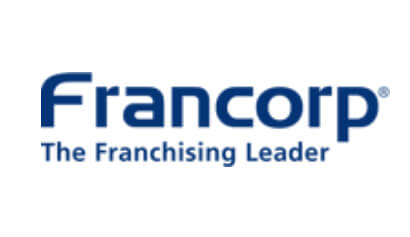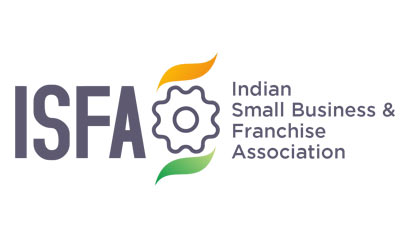To get access to over 10000+ Franchise Business Opportunities.
Network with the growing Business Community to get expert interventions to let you learn to Grow & Expand your Business with Franchising.
While master franchising is a key to a successful expansion beyond the territory of one's home country, there is a need to plan and strategise adroitly and effectively the expansion bid, before one sets foot on a foreign land with a diverse culture, legal
EVERY successful business reaches the stage when the owners realise they have gone as far as they could go in their home country and need to look abroad for further expansion. Then they have three options: they can move into another territory to set up a branch there. But the cost could be high, the language and culture may be much different from their own, and the logistics of managing a business in another country from their home base can be considerable.
They could buy a similar business, or perhaps a chain of similar businesses, and re-brand. Again, they would be confronted with the same issues.
Or they could look to expand their business through franchising. This can be achieved very successfully by issuing master licenses. A master franchise agreement gives someone the right to operate, sell, and service franchise units in a defined territory using a form of franchise agreement approved by the franchisor and requires the master franchisee to enforce its franchisees' obligations under such an agreement.
In short, running a master franchise involves replicating in a country or region (a country with a large population may be divided into several regions) what the franchisor has already created in his own patch.
Knowing about the new market
The key to international marketing is research. Before you move into a new territory do your due diligence. Understand the market you are going into. Research the market properlythis will impress your potential buyer and you could get a better price for the license. Every country is different and what works in your own country may not work in another. Research the business culture there. For example--and this is very important--will your slogan make sense in another country? Will there be any import restrictions on the products you are supplying or could there be supply chain issues?
Strategising effectively
Have an investment mindsetyou are in this for the long term, not for a quick kill. Commit yourself to developing a sound foundation. Write a business plan. Create a marketing entry strategy. Make sure your trade marks are registered properly and get legal advice. Look for a partner with a skill-set that complements yoursI mean operational skills and financial capability. Spend time getting to know that person. Ideally, open a pilot operation there in conjunction with your partner. Develop a relationship that will endure.
A master franchise is a major undertaking for anyone. It will usually be much more expensive than the cost of a local or “unit” franchise and a master franchisee will need deep pockets to promote it properly. Equally important, the prospect will need to convince you that he has the management capability to run the business.
The financial outlay might be high, but the rewards can be worth it. While a unit franchisee might be happy to make a “comfortable” living, the master franchisee may be looking for really big profits when his network is firmly established.
Setting realistic targets for master franchisees
The master agreement should always include a development schedule--a performance clausewhich stipulates the minimum number of units you expect him to sell each year. Are the targets realistic? Be reasonable and don't expect him to sign up to the impossible.
The operation of both master and unit franchises is carried out according to operation manuals prescribed by the franchisor. While the initial term of a unit franchise is usually five years, a master license may be granted for 20 years with an option to renew. Such a lengthy term is necessary as it could take several years before the master franchisee's network is established and his investment pays off.
Desirable skills of a master franchisee
Buying a master franchise is potentially a good idea for someone who is an experienced manager with sales and marketing skills and has run a multi-unit business in the past. He would be building an asset which could fetch a substantial price when he comes to sell. The franchisor's brand may be well established and systems are in place. But how sure can he be that the business will work in his country? Cultures differ and success in one country doesn't guarantee success in another.
While you will have given him your best advice, he will need to research the market thoroughly himself before making a decision. He will be asking if the business has the “legs”. Will it survive in the long term?
Opening 'pilot' franchise
Unless the brand is big enough to have potential franchisees clamouring to sign up before the concept is proven in his region, he may consider opening a 'pilot' franchise himself. It could be a useful showcase for franchise sales.
Apart from the fee you get for the master franchise, it is normal for you, the franchisor, to receive a fair share of the fee the master franchisee gets from the sale of each local franchise and also a portion of the monthly management fees that he collects from his franchisees. This is not unreasonable since you will be training his franchisees and he will have the benefit of your systems and ongoing support and the pulling power of the brand you may have spent a lot of money creating.
Remember, all franchising is about relationship building. It’s not always the man with the biggest cheque book that is going to be successful. Choose your master franchisees just as carefully as you would choose your own ‘local’ franchisees.


Business Opportunities
Browse By Investment Range
Browse By States
Popular Cities















